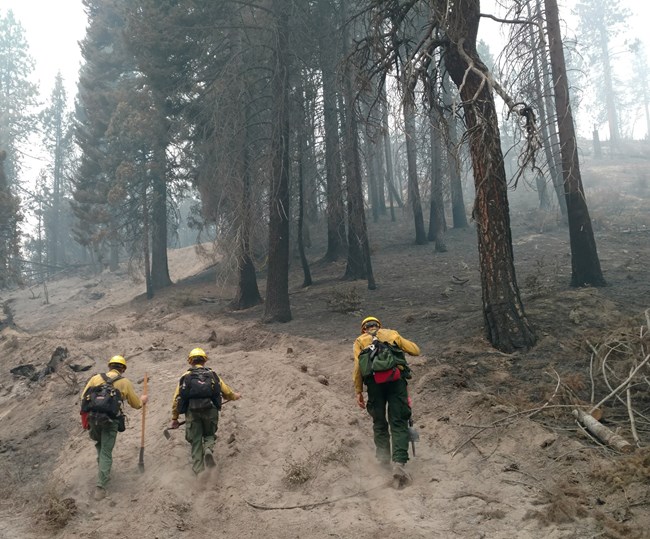Last updated: June 30, 2020
Article
Training in the Era of COVID-19 Offers Challenges and Opportunities

The National Park Service (NPS) hosts Resource Advisor (READ) training sessions each spring. This year, when COVID-19 prevented non-essential travel and large gatherings, the NPS Department of the Interior Regions 6, 7, and 8 had to find another way to deliver training to resource advisors.
By providing expertise and knowledge on the local natural and cultural resources, resource advisors play a crucial role ensuring that park resources are protected during wildland fires. They advise fire managers on which resources are most likely to be impacted both by the fire and fire suppression efforts. This allows the firefighters to manage more effectively the fire while ensuring that resources the park protects are preserved for future generations to enjoy.
“The trainings we have every year are important to make sure that our resource staff have the proper tools needed for the upcoming fire season,” said regional wildland fire and aviation program planning and compliance specialist, Lisa Hanson. “In order to comply with CDC guidance and to ensure the health and safety of our staff, we decided to host the training online.”
The in-person training traditionally utilizes scenario practice exercises and hands on training for digital mapping tools.
“Due to the online platform, we had to rework the agenda and the use tools like group polls as interactive activities,” noted Hanson. “We had two moderators tasked with answering questions in the question box in addition to a cadre of 8-10 instructors. We were getting about 200-300 questions for each day in the three-day class.”
The new forum presented some initially unforeseen positive outcomes. Regions 6, 7, and 8 were able to combine efforts and reciprocate assistance on training sessions with Region 8, 9, 10, and 12. In a typical year the in-person training draws about 75 attendees; however, because participants did not need to travel, the training attracted over 330 participants. The NPS national post-fire program manager, Rich Schwab, was instrumental in in putting all of these efforts together.
NPS natural and cultural resource staff serve as wildland fire resource advisors as an extra collateral duty in addition to their regular job duties. During a busy fire season, resource advisors can be in short supply.
“I think that the primary challenge is that resource managers have their own work with their own schedules and deadlines,” said Hanson. “The more people we can expose to the training the better prepared we will be for a busy fire season.”
Not all the people who attended the training will be available to respond to wildfires, but the program also helps park staff to plan for wildland fires and create guides that are used by resource advisors who assist with a park fire. That way the incoming resource advisor will have immediate access park resource priorities, records, and locations.
“We are excited to get back to normal operations but in wildland fire management we have to be adaptable to new and evolving situations and I think this has been a great example of how we face new challenges and create positive outcomes,” added Hanson.
